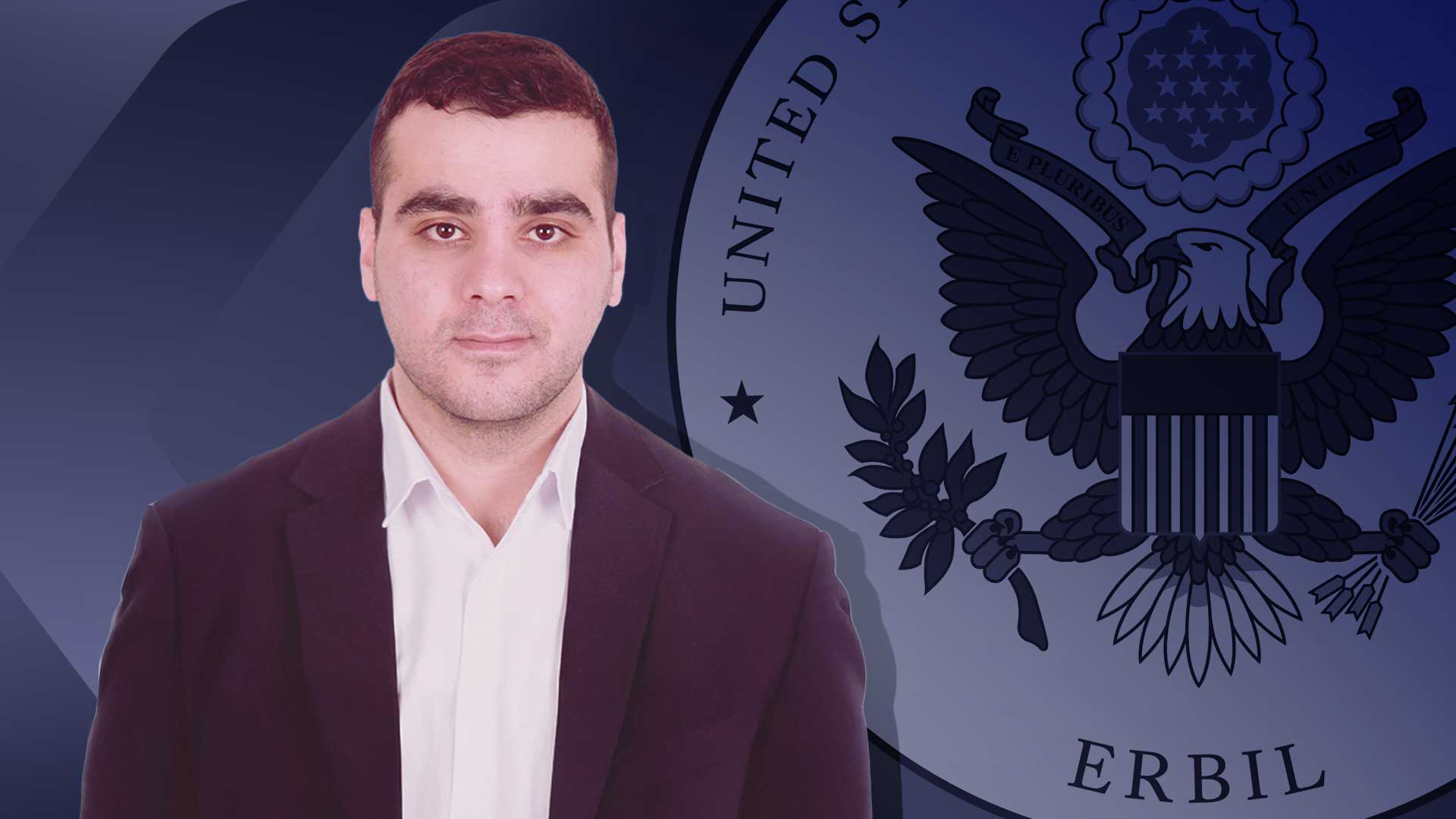Aran Walladbagy Unpacks U.S. Strategic Vision: Largest American Consulate in Erbil Marks a Historic Shift in Middle East Diplomacy
Walladbagy's paper, 'Why is the U.S. Building Its Largest Consulate in Erbil?' examines the strategic and diplomatic reasons behind this move and its long-term implications.

By Ahora Qadi
ERBIL (Kurdistan24) – The United States is preparing to open its largest consulate in the world—in Erbil, the capital of the Kurdistan Region of Iraq—an ambitious and unprecedented move that not only underscores Washington’s strategic priorities in the Middle East but also elevates the Kurdistan Region as a central node in future U.S. diplomacy, intelligence, and economic policy.
This pivotal transformation is thoroughly examined in a research paper by Kurdish analyst Aran Walladbagy, submitted to Kurdistan24, which details the far-reaching consequences of the U.S. diplomatic presence in Erbil.
A Diplomatic Milestone with Strategic Depth
Walladbagy’s research paper, titled "Why is the U.S. Building Its Largest Consulate in Erbil, Kurdistan? A Closer Look at the Diplomatic and Strategic Implications," provides a layered analysis of the factors driving the U.S. decision and its long-term ramifications.
“The Erbil consulate is more than a symbol; it is a fulcrum of American influence,” Walladbagy writes. “This isn’t just the opening of a diplomatic facility—it’s the anchoring of a new era of engagement.”
Covering over 200,000 square meters and built at a cost nearing $800 million, the sprawling compound reflects a robust commitment to sustained U.S. involvement in the region, even as troop levels across Iraq and the wider Middle East decrease.
Kurdistan’s Geostrategic Value to Washington
Walladbagy emphasizes that Erbil offers the U.S. unmatched geopolitical leverage in a volatile region bordered by Iran, Syria, and Turkey. “Kurdistan functions as a secure intelligence platform and a diplomatic gateway to broader regional engagement,” he notes.
With Erbil’s developed infrastructure, political stability, and proximity to high-risk zones, the consulate is positioned to serve as a critical command hub for U.S. operations—ranging from crisis response to counterterrorism and humanitarian coordination.
Implications for the Kurdistan Region
For the Kurdistan Regional Government (KRG), Walladbagy argues, the consulate solidifies international legitimacy and enhances the Region’s profile as a stable partner to Western powers.
He also stresses the economic dividends: “The presence of the world’s largest U.S. consulate will attract multinationals, deepen diplomatic circuits, and invigorate local economies—from construction and logistics to tourism and education.”
Yet Walladbagy does not shy away from warning of potential risks. He outlines how this visibility could draw scrutiny or retaliation from regional actors opposed to a strong American footprint, especially Iran and Turkey. “Kurdish leaders must exercise strategic discretion to balance between asserting their international partnerships and avoiding escalations with neighboring states,” he cautions.
Recalibrating U.S. Regional Strategy
The research highlights that Erbil’s selection over Baghdad is a calculated U.S. pivot toward reliable, Western-aligned partners. Walladbagy explains that “Iran’s entrenched influence in Iraq’s central government has compelled Washington to double down on its ties with Erbil, where pro-Western values prevail.”
He also underscores the role of the consulate as a tool of soft power, enabling educational exchanges, development programs, and cultural diplomacy—an extension of American influence through engagement rather than military might.
A Platform for Future U.S.-Kurdish Cooperation
Aran Walladbagy concludes that the Erbil consulate is a foundational step toward transitioning the U.S.-Kurdish relationship from its traditional military roots to a broader and more institutionalized partnership.
“It is both an endorsement of the KRG’s governance capabilities and an invitation for Kurdistan to emerge as a vital interlocutor in Middle Eastern affairs,” he writes.
In conclusion Walladbagy says that in a time of shifting alliances and recalibrated regional strategies, the largest U.S. consulate being built not in Baghdad, but in Erbil, is an unmistakable signal: Kurdistan is not just a safe haven—it is a strategic partner shaping the new Middle East.